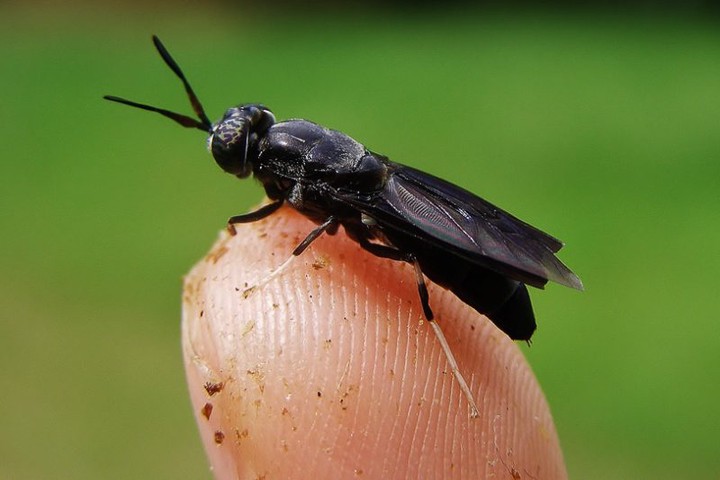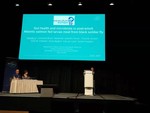AquaFly Project
 Image credit: SeaWestNews
Image credit: SeaWestNewsFinding solutions to produce more safe and healthy food in a sustainable way to meet the global population growth is a major challenge for our generation. In salmon aquaculture, limitations on availability of sustainable feed ingredients are a major obstacle. In the AquaFly projected, we proposed using insects as a feed ingredient for Atlantic salmon.
Black soldier fly, Hermetia illucens, has been produced at industrial scale in Europe for its exceptionally good nutritional value and suitability for massive production. The essential amino acid profile of black soldier fly larvae is closer to fishmeal than that of the standard soybean meal. The fat content and fatty acid composition of larvae are more diet-dependent. In the AquaFly project, black soldier fly larvae were fed on feed substrates containing low-value organic wastes (brewery wastes and macroalgae). The larvae were processed into protein- and lipd-rich products, which were tested as alternative feed ingredients for Atlantic salmon in a freshwater and a seawater feeding trial.
The project is a cooperative effort involving 12 research and industry partners. We evaluated the fish growth, health, welfare and fillet quality, in addition to documenting the transfer of nutrients, bioactive compunds, contaminants, metals and pathogens along the whole production line. The project also evaluated the environmental, social and economic sustainability of using insects as an alternative feed ingredient for salmon.

